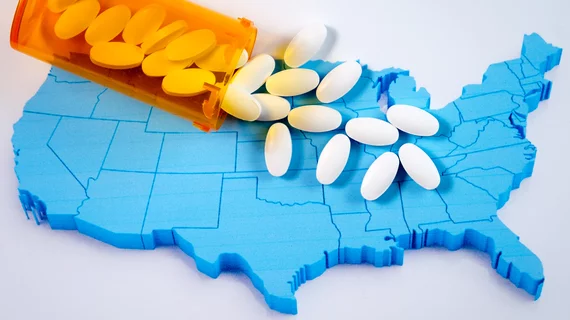Drug prices rise once again in 2020
Drug prices are on the move upward once again in 2020, according to new data from 3 Axis Advisors.
Bristol-Meyers Squibb, Gilead Sciences and Biogen, three major drugmakers, increased prices for more than 50 drugs on New Year’s Day. Overall, more than 250 drugs saw higher prices in the new year.
Reuters was first to the report the findings, following another report that drugmakers Pfizer, GlaxoSmithKline and Sanofi were raising prices on more than 200 drugs in 2020. More price increases could be announced in the future.
Bristol-Meyers rose prices on 10 drugs on New Year’s Day, including a 1.5% increase on cancer immunotherapies Opdivo and Yervoy, as well as a 6% increase on Eliquis, a blood thinner. Multiple myeloma drug, Revlimid, also saw a 6% jump. Meanwhile, Gilead rose prices across 15 drugs, including HIV treatments Biktarvy and Truvada. Biogen increased the price of Tecfidera, a multiple sclerosis treatment, by 6%.
The price hikes are nearly all below 10%, with the median price increase around 5%. The increases are in line with pledges by some drugmakers to keep price increases below 10%, bowing to public pressure.
The issue of drug prices has come under the limelight for the upcoming 2020 election. Lowering drug prices has also been a central pledge for the Trump administration, though prices also rose last year.

